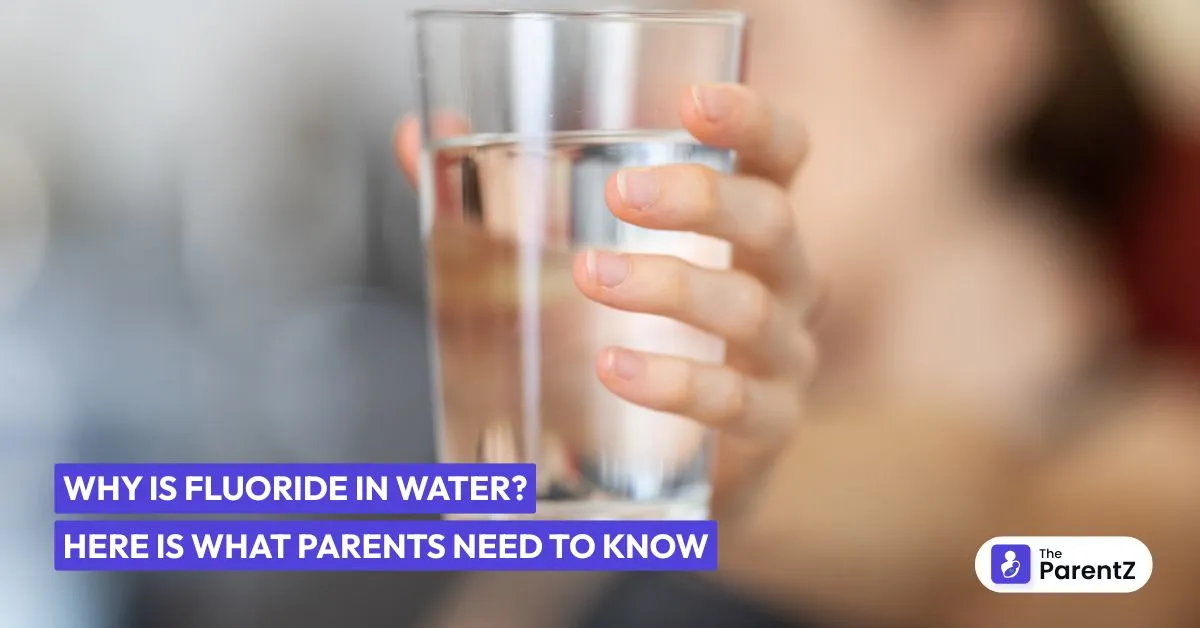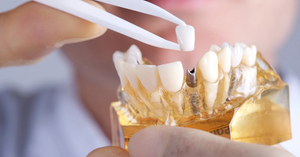If you’ve ever stared at your child’s cup of tap water and wondered, “Why is there fluoride in this?”—you’re not the only one concerned. Many parents question whether fluoride is a helpful dental protector or just another confusing ingredient you probably want to decode.
Read below this article to find out why fluoride is added to drinking water, what it does, and whether it’s actually safe for your kids.
Why Is Fluoride Added to Drinking Water?
Fluoride is a naturally occurring mineral found in soil, rocks, and some foods. Scientists discovered nearly a century ago that fluoride helps prevent tooth decay by strengthening enamel—the hard outer layer of teeth.
The main reason it is being added to drinking water is simple: to prevent cavities—especially in children.
According to the Centers for Disease Control and Prevention (CDC), community water fluoridation has been shown to reduce tooth decay by about 25 percent in children and adults. That’s a big deal when you consider that tooth decay is one of the most common chronic diseases in children.
And the best part? It’s passive protection—you don’t have to do anything extra. Just drinking tap water gives your child a little boost toward better dental health.
Is It Safe for Kids?
Yes—when used correctly, fluoride in drinking water is considered safe for children by major health organizations, including:
- The American Dental Association (ADA)
- The World Health Organization (WHO)
- The CDC
The amount added to water is very small—typically 0.7 milligrams per liter, which is just enough to protect teeth without causing harm.
Are There Any Risks?
Like anything, too much of a good thing can cause problems. In rare cases, children who consume excessive fluoride—especially from multiple sources like toothpaste, supplements, and water—can develop dental fluorosis. This condition leads to faint white spots or streaks on the teeth. It’s mostly cosmetic and doesn’t affect health, but it’s something to be mindful of.
Here’s how you can help avoid that:
- Use only a pea-sized amount of toothpaste for children aged 3 to 6.
- Supervise brushing to make sure your child doesn’t swallow toothpaste.
- Talk to your dentist before using fluoride supplements if your water is already fluoridated.
What If You Use Bottled or Filtered Water?
Many bottled waters don’t contain fluoride unless it’s specifically labeled. Some home filtration systems may also remove fluoride. If your child drinks mostly bottled or filtered water, ask your dentist if a supplement might be needed.
What Parents Really Want to Know
It’s natural to question what’s going into your child’s body. But decades of research and public health data show that fluoride in water is one of the simplest, safest, and most effective ways to fight cavities.
And when your kid is too busy being a tornado of energy to properly brush for two full minutes? That fluoride can make all the difference.
Conclusion
In short, fluoride is added to water to help keep teeth strong and prevent decay. It's backed by science, widely recommended, and safe when used appropriately. As a parent, the best thing you can do is stay informed, ask questions, and make sure your child is brushing with care.








Be the first one to comment on this story.